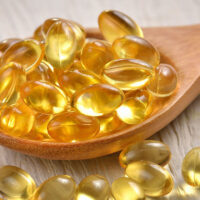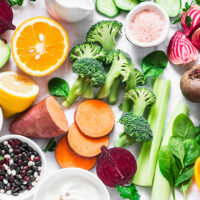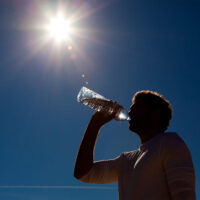Wouldn’t it be great for you to be able to say that you are eating well? Wisely chosen supplements and nutrients make it easier to correct dietary mistakes and are a perfect way to diversify your diet. Plus, they are indispensable as a specific and directional support of physical activity.
Table of Content:
1. Diet vs. Supplements
2. A Good Diet. How to Choose the Nutrients?
3. How to Properly Build Up Muscles?
4. Can Supplements Replace a Good Diet?
5. Diet Rich in Omega Acids
1. Diet vs. Supplements
In our society, we tend to say that “chemicals” are harmful. Potentially harmful and banned chemical products are lumped together with legally sold, professional supplements , produced in pharmaceutical plants. This often causes misunderstandings.
Plant protection products, farm animals fed with synthetic foods, antibiotics, environment pollution, crossbreeds, genetically modified foods, etc. tend to make our diet far from being wholesome, healthy and nutritious. What is even worse, with such products we introduce into our bodies a number of potentially harmful ingredients, and never really know what we eat.
Supplements and nutrients by renowned companies are subjected to much stricter control (both at the stage of raw material selection and on the entire processing line) than the foods sold, for instance, at the market.
You can be sure that the ingredients listed on the packaging by a renowned producer are exactly what you will find inside (the Polish legal provisions define the issue exhaustively).
2. A Good Diet. How to Choose the Nutrients?
Our ancestors’ diet, in the dim and distant past, was mainly composed on meat and fish, eggs, edible roots, seeds, nuts, fruit and vegetables. This is where ancient people took vitamins and minerals from.
Modern man’s diet, in turn, mostly contains cereals, vegetables, milk and milk products, as well as fruit, meat and fish. Although eating fruit and vegetables is highly encouraged, cereals remain on top of the list [more about cereals, see “Perfect Body” issue 2 – editorial note].
But theory is one thing, and real life is another. If you compare the dietary recommendation with the diet of an average John Smith, you will not find the recommended amounts of fruit and vegetables.
So, no wonder so many people have deficiencies of microelements.
Supplementation with plant extracts or dedicated combinations of minerals and vitamins is often the best and most convenient way to eliminate such deficiencies.
Nonetheless, you need to remember that natural products contain many microelements that cannot be found in supplements or nutrients. This makes supplements an addition to, and not a replacement of, a reasonable diet.
3. How to Properly Build Up Muscles?
Many people find it difficult to build up muscles. To make the work effective, you need to eat more than you burn. And this is where supplements enter, to help you achieve your objective.
With high-protein nutrients you will easily and tastily supplement your diet, without force-eating subsequent food portions, up to the level when you will effectively increase your weight. Yet, you must be careful not to overdo, as then you will start to accumulate unnecessary fat. Remember that insignificant increase of fat mass is permitted.
Chicken breast or 1 portion of high-protein nutrient?
This is my favourite comparison, which I always use whenever asked about what a high-protein nutrient really is.
Let us have a look at the list of macroelements:
100 g of raw chicken breast, without bones and skin, contains (on average):
- 21 g of protein
- 3 g of fat
- 0 g carbohydrates
100 g of System Protein 80, a popular high-protein nutrient by Olimp, contains:
- 77 g of protein
- 5.7 g carbohydrates
- 3.8 g of fat
If you compare doses with the same protein content (27 g of System Protein 80), the results are as follows:
- 21 g of protein
- 1.6 g carbohydrates
- 1 g of fat
Assuming that an average physically active person should eat 2.2 to 2.5 g of protein per each kilogram of body mass every day, the daily dose for a person weighing 80 kg equals 176-200 g,
i.e. almost 1 kg of chicken breast, the bodybuilders’ favourite source of protein, every single day. Or 228 to 259g of the protein powder.
Rice or a portion of gainer?
Let us have a look at another important element of bodybuilders’ diet, i.e. rice, and a popular flavoured supplement for those who have problems building up muscles.
According to information on the packaging, 100 g of dry rice contains:
- 7 g of protein
- 1 g of fat
- 75 g carbohydrates
A very similar proportion is represented by Gainbolic by Olimp Laboratories: 100 g of the powder contains:
- 15 g of protein
- 1 g of fat
- 80 g carbohydrates
The main difference is considerably higher protein content in the supplement, with similar other values.
For this reason, we recommend breaking the dietary monotony from time to time and replacing rice with a portion of gainer.
4. Can Supplements Replace a Good Diet?
No, but they can make it more complex or fill the gaps.
The diet of our distant relatives (those from the first days of humanity) is often used as the diet of reference.
Our ancestors used to eat much more Omega-3 fatty acids, while cutting down on Omega-6. The proportion between these two varied, depending on the location of the early human settlements, from 1-3 to 1-6. Analyses show that in an average diet of today’s man the numbers equal 1-25 to 1-50. Some scientists explain many civilizational problems with these disturbed proportions.
Therefore, out of concern for our health, we should consider correcting the share of both in our diet.
5. Diet Rich in Omega Acids
Obviously, this can be done by eating more fish found in the deep sea, but not everyone likes their taste. Plus, there is also the issue of high content of heavy elements, including lead, in their meat.
Therefore, supplementation with Omega-3 capsules should be considered.




